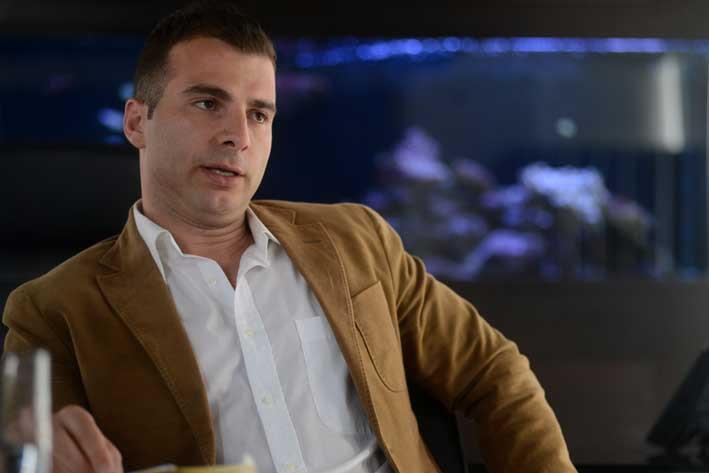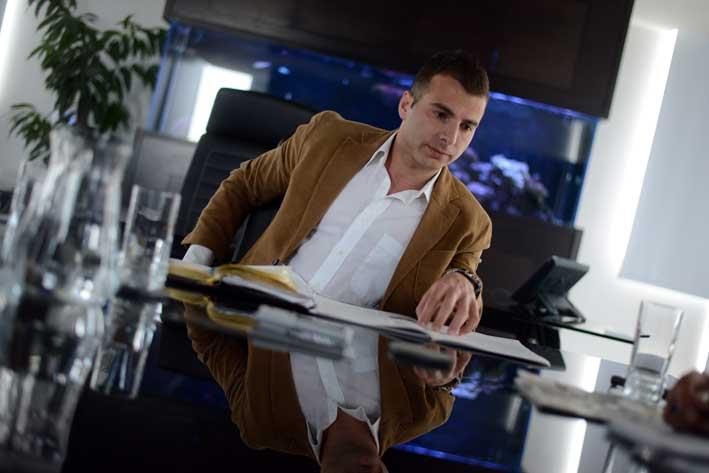In light of document presented for public consultation by the PN regarding short-term measures to reduce traffic congestion, Matthew Bezzina, had a number of points to make regarding long term solutions, rather than short term aims.
“To tackle the mistakes which have been made over the past 50 years and to challenge the status quo and modus operandi of how society works and businesses operate, you must take decisions which will hurt. Unfortunately neither party has the guts, so to speak, to take these decisions. This is why I insist that political consensus is the only way forward. This is unless a politician takes a stand knowing full well that he will not be re-elected in the next election.”

Politics compounding traffic
Mr Bezzina has spoken harshly before about how politics are compounding the country’s traffic situation; but it was also pointed out that the politicians cannot be held entirely responsible for the ever-worsening traffic problems on the island.
“I empathise with the past ministers, the current minister and the future ministers of transport because it is not an easy job to have,” said Bezzina, adding that it is the responsibility of business leaders, contractors, and society in general to help politicians to take the right decisions rather than pushing them up against the wall. If it was the society and business leaders who allowed politicians to take decisions which led to this situation, we must be part of the process to correct the mistakes made.”
Speaking about the PN proposals in particular, Bezzina said that they are all a very good step to take, but they mean nothing in the long term. “It is futile to have temporary treatment just to feel better. This like giving painkillers for cancer. It will make the pain better, but it will not remove the cancer. Both parties are proposing things that act as painkillers and we need solutions to ultimately remove the cancers. We need a surgeon to come forward and you will hate him because of the pain he will put you in for the greater good.”
“The proposals are good, but the word ‘voluntary’ shows that there is a kind of fear. If I have a grievous wound, I don’t need a plaster, I need surgical intervention. For example, the ‘voluntary scheme’ to be implemented all over the EU of odd and even numbers. One day being reserved for the odds and another for evens. Why ‘voluntary’?

Afraid to take a stand
“This is because everyone is afraid that if they take a stand. Let’s all sit around a table and discuss it together, if there really is a joint political will to solve the issue once and for all. There is a political consensus in tourism, gaming and financial services. Why isn’t there one on an issue which affects every single member of the public? There have been many times when the political parties have risen above the level of ‘village politics’ on a number of issues.
“The PN had the guts to come up with these proposals two years before the election, rather than waiting until just before to look good. They took a risk because they can easily be taken and implemented by the PL government and they will take credit for them.”
The initial reaction of the PL to the proposals, especially the idea that Transport Malta will be presenting their own proposals later on this year, shows some form of political consensus, insisted Bezzina. “There will definitely be a point when the parties have to join together because synergy works in everything. As they say, 1+1=3. Definitely, if there are juices coming from both parties taking collective decisions, ultimately the end product is going to be better.”

Parties need to work together
Sticking to his penchant for very human metaphors for traffic, Bezzina rattled off a couple more to further illustrate his point likening the PN and the PL to “two divorced parents who obviously don’t agree, but they have a child and for the long term benefit of the kid, they need to agree on certain things.”
“From a selfish perspective, it might be the opposition’s problem in the near future, from the other one, the country is currently being eaten away slowly due to isolated developments. It’s a tumour that keeps growing. Nobody has the gall to operate and remove it because of the recovery time. Let it grow until it kills us. We are afraid of the treatment because of how it will affect our lives, so we will let it kill us.”
The entrepreneur pointed out how we need to be a little more ‘Nordic’ in our approach to politics, speaking about Esko Aho, a Finish politician who revolutionized the Finnish education system and made it one of the best in the world. He did so, however, at the detriment of his chances to be re-elected. “That’s what I call a true politician with the good of the country at heart.”
“Fine, I am a capitalist, but I am a sustainable capitalist both from a financial and environmental perspective. What is the point of having the Sliema peninsula, with a road network designed for a certain amount of units but nowadays there are large buildings being proposed, which are good within themselves, however the infrastructure will not safeguard or make the project viable. I don’t expect an architect to plan it and then leave it up to whoever is concerned to deal with the consequences. The problem used to be, ‘Where will I park?’ but it has now turned into, ‘Will I get there or not?’”

Not in my backyard syndrome
“The Maltese mentality of ‘not in my back yard’ reigns not only in our homes but in everything. Let’s take development, for example. You have developers, architects, engineers and business leaders who always see a project only within its own sphere.”
Three prominent architects, Edward Said, Richard England and Conrad Thake heavily criticized the 40-storey Fort Cambridge project in Sliema in local media this week in a perfect parallel to what Mr Bezzina told TMI during this interview.
They said that it was being studied in isolation while lacking long-term planning, which is identical to what Bezzina said was the problem with new development in general in Malta, as well as the project in question in particular.
“What’s the point of going to the gym and growing my muscles to impressive proportions if my veins and arteries don’t grow at the same rate and, as such, cannot transport blood to the area effectively? This is what’s happening. If you just look out the window you can see 15 tower cranes in a road network designed 50 years ago. Who are you kidding? Why is there such a selfish attitude from the contractors who can’t see the bigger picture? They only care about building and making money.
“If you consider the Sliema Tower Project, the architect ironically said that the effect on the surrounding area will be ‘negligible’. 40 floors and the effect on traffic will be negligible. Not to mention the lack of any drop-off or alighting zone and the road network with a limited number of entrance and exit points.”

Gzira: An up and coming area
Bezzina also spoke about development in Gzira saying that the “up and coming area sandwiched between Ta Xbiex and Sliema” was designed in the post-war period with two units per plot and a road network specifically designed to handle that load. “With the amount of development in Gzira right now and in the near future, it is a certainty that the current infrastructure will not be able to handle it.
“When I say infrastructure, I mean both from a capacity perspective and an aesthetics perspective. We are planning these large projects for six star tourists, but if the infrastructure doesn’t compliment the actual projects, it is useless.”
This harkened back to the idea of politicians being helped rather than hindered by business leaders and the people proposing so-called development. “We need to start looking at proposed projects in a holistic, macro perspective. That’s why we can’t just wait for the politicians to take decisions. If MEPA says that there are six policies, why should we have to limit ourselves to just those six rather than taking decisions which go above and beyond those which are asked for by law?
“This will ultimately help the politicians to be proactive and to solve the situation. There needs to be a master plan to encompass everything to address both capacity and aesthetics. Not to have the left and right hands working independently of each other. Before we look at not ruining the aesthetics however, let’s see what capacity we already have and how to not need so many cars.”
Mentioning the area in Gzira around Manoel Island, Bezzina noted the positive step in maximizing road space where there used to be a bottleneck which was removed by the government. Around 15 parking spots were sacrificed to make it a three-lane road. “Traffic there nowadays is flowing but at the detriment of people not having where to park. These are the kinds of hard decisions which sometimes need to be taken.”